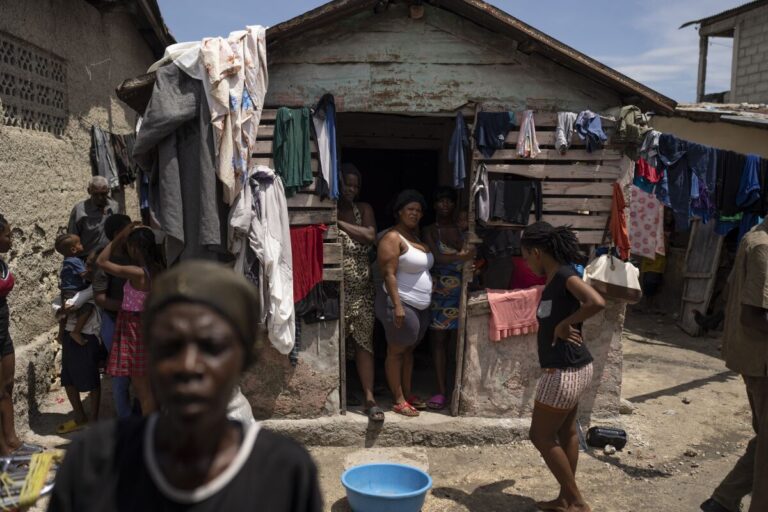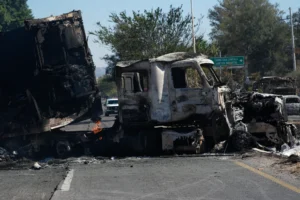A gang rampaged through the Cite Soleil slum, killing and raping and setting fire to hundreds of wood-and-tin homes. Forced out of the neighborhood, one family of four lived on the streets of Port-au-Prince until they were struck by a truck as they slept.
Two brothers, 2 and 9, died in the November accident. Jean-Kere Almicar opened his home to their distraught parents, then another family, then another, until there were nearly 200 people camped out in his front yard and nearby.
They are among more than 165,000 Haitians who have fled their homes amid a surge in gang violence, with nowhere to turn in this capital of nearly 3 million people.
Almicar, who once lived in Scranton, Pennsylvania but moved back to Haiti in 2007, uses his own money.
“There was nothing I could do except tell them to come in,” Almicar said. “Their home doesn’t exist anymore. If they go back, they’re going to be killed.”
Some 79,000 people are temporarily staying with friends or family, but another 48,000 have crowded into dozens of makeshift shelters like Almicar’s or sought refuge in parks, churches, schools and abandoned buildings in Port-au-Prince and beyond. The situation is overwhelming nonprofits and non-governmental organizations.
“The government is not relocating anyone,” said Joseph Wilfred, one of several volunteers in charge of an abandoned government building in Port-au-Prince that houses nearly 1,000 people, including him and his family.
Tens of thousands of Haitians have languished in these makeshift shelters for almost a year. They sleep on the hard floor or on flattened cardboard boxes. Belongings are stuffed into big rice bags pushed up against the walls of packed rooms. The gangs that chased them out of their homes and control up to 80% of the capital, by most estimates, are now recruiting children as young as 8 at shelters.
One woman staying at Almicar’s place, Lenlen Désir Fondala, said someone snatched her 5-year-old son while they were living in an outdoors park in November. Her face crinkled and she began to cry, whispering that she still dreams of him.
Rapes also are common at the shelters and in the neighborhoods that gangs are razing.
Lovely Benjamin, 26, has scars on her torso and arm after being shot by gangs and attacked with a machete. Her 4-year-old son bears a machete scar on his head. They are homeless, and Benjamin struggles to find work. The gangs torched the items that she used to sell, including rice and oil, and she doesn’t have the money to buy more. She and her little boy survived the attack but gang members killed her partner and set his body on fire.
“Everybody was running,” she recalled. “The gangs burst into everyone’s home.”
Benjamin and her son now live in Almicar’s front yard along with other neighbors from Cite Soleil. On a recent morning, they crowded together, surrounded by heaps of clothes soaked by recent floods. The rocky floor where they sit and sleep also serves as a makeshift kitchen, with some cooking beans or vegetables on tiny, charcoal-fired stoves.
Those living alongside Benjamin include Januèlle Dafka and her 15-year-old daughter, Titi Paul, who were both raped and impregnated by gang members. Another neighbor, Rose Dupont, confided that she was nine months pregnant when four gang members shot her in the shoulder then beat and raped her, causing her to miscarry. The Associated Press does not identify people who say they are the victims of sexual assault unless they agree to be named, as Dafka, Paul and Dupont did.



























